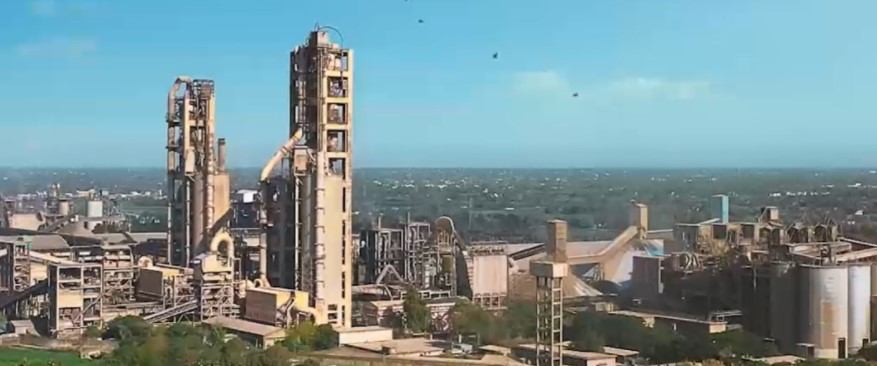
(Photo : ambujacement.com)
Ambuja Cements
- Ambuja Cements partners with Coolbrook to implement RDH technology, reducing fossil fuel dependence and carbon emissions.
- The RDH technology uses green power to generate high temperatures, crucial in cement manufacturing.
- Ambuja aims to improve Alternative Fuel and Raw material to 28% and achieve 60% green power by 2028.
- This partnership is a significant step towards achieving Net Zero goals and sets a precedent in the cement industry's journey towards sustainability.
In a significant stride towards achieving its Net Zero goals, Ambuja Cements, a prominent entity in the cement and building material industry under the diversified Adani Portfolio, has announced a strategic alliance with Finland-based technology and engineering firm Coolbrook. This partnership underscores Ambuja Cements' commitment to sustainability and industry leadership, as it seeks to drive efficiency and decarbonisation across its cement manufacturing value chain.
The collaboration will see Ambuja Cements implementing Coolbrook's proprietary RotoDynamic Heater (RDH) technology, a substantial step towards reducing its dependence on fossil fuels and curtailing carbon emissions. The RDH technology harnesses renewable electricity for zero carbon high-temperature process heating, thereby significantly reducing the company's reliance on fossil fuels.
Ajay Kapur, CEO of Adani Group Cement Business, expressed his enthusiasm about the partnership, stating, Our strategic partnership with Coolbrook is a testament to our commitment to Net Zero targets. This move further strengthens our industry leadership in sustainability. We continuously seek out innovations which drive efficiency and decarbonisation across our cement manufacturing value chain.
Harnessing Green Power for Cement Manufacturing
The RDH technology uses mechanical energy to generate high temperatures using green power at highly competitive rates. This process can replace or minimise the use of fossil fuels for reaching high temperatures in cement kiln precalciner, a crucial aspect of cement manufacturing and multiple other applications.
Kapur further added, Leveraging our Adani Group's green power generation capabilities, we will be able to reduce fossil fuel dependence, costs, and emissions, ultimately delivering the best value for our stakeholders. Coolbrook CEO Joonas Rauramo also expressed his enthusiasm about the partnership, stating, Ambuja Cements' strong commitment to sustainability and leadership position in renewable energy makes them an ideal partner for us to expand our offerings and drive the global energy transition.
The RDH technology, being a carbon-free process, can significantly reduce emissions from the use of conventional fuels in a cement plant. This technology further advances Ambuja Cements' industry leadership in driving decarbonisation across its cement manufacturing process.
Ambuja Cements' Sustainability Goals
The company has set a target of improving Alternative Fuel and Raw material (AFR) to 28 per cent and achieving green power of 60 per cent by 2028. This partnership with Coolbrook is a significant step towards achieving these targets.
Ambuja Cements, along with its subsidiaries, has taken the Adani Group's cement capacity to 89 MTPA with 22 integrated cement manufacturing plants and 21 cement grinding units across the country. These efforts are part of Ambuja's broader strategy to drive decarbonization across its value chain while ensuring operational excellence.
Historically, the cement industry has been a significant contributor to greenhouse gas emissions due to its reliance on fossil fuels for high-temperature heating. However, the industry has been making concerted efforts to reduce its carbon footprint. The partnership between Ambuja Cements and Coolbrook is a significant milestone in this journey towards sustainability and decarbonisation.
* This is a contributed article and this content does not necessarily represent the views of btin.co.in









